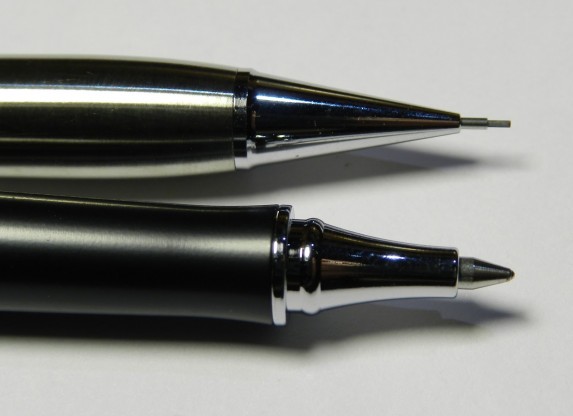 “The pencil is mightier than the pen.”
“The pencil is mightier than the pen.”
― Robert M. Pirsig, Zen And The Art Of Motorcycle Maintenance: An Inquiry Into Values
A pencil is the instrument we most likely first used as we began the journey of developing our skills to communicate in writing. We learned to express a wide variety of subjects at our youngest school years by using a pencil. Math, science, composition, history…basically every subject we were tasked with was almost entirely reported upon by our use of a pencil to craft our essays, to answer our test questions, and to develop our hypotheses.
The pencil also became much more of a partner during this time. When we recognized an error in our initial solutions to problems, we could simply clear away our old thoughts and put down our updated and more informed ideas. If we wrongly calculated an advanced challenge, we could erase that first idea and replaced it with a more accurate and well-reasoned response.
The pencil was back then a collaborator. It allowed us to say what we wanted to say, but also allowed us to change our minds if new information or a better way to share our ideas came to us. The pencil even helped us shed ourselves of those old ways of thinking. Even when the pencil had given all of its’ eraser to ‘making things right’, we often kept using that pencil and a new eraser because THAT pencil had been through a lot of work together with us!
A pen, however, is very different–and it should be. We learned soon enough that a pen caused us to express our ideas—and then be forced to stick with them. Even when we learned more information that allowed us to see things in a new way; when we found a better answer to a problem or challenge—if we employed a pen in our work, we knew that there was little chance of going back and realigning our new intelligence without showing we approached things all wrong first time out. As we grow to be more informed, more skilled and more prepared to handle more complex problems, there are expectations others have for us to be ready and decisive in our responses. Part of this includes taking very clear stances on issues and inquiries. Part of it includes committing ourselves to opportunities with much greater permanence. Not convinced? Consider signing a check or legal documents—which must you use when signing your name?
Our ability to choose is much like the pencil and our decisions are more likely to be followed through upon like using a pen. When working with others, it’s highly important to understand the value and the responsibility of acting with a pencil perspective or a pen mindset.
This article was originally published at http://www.careersingovernment.com